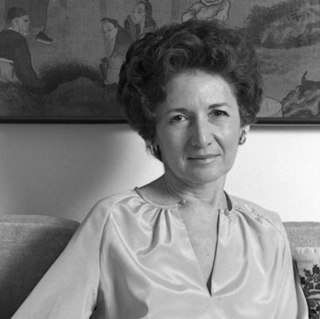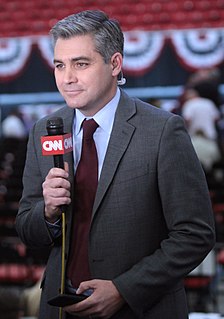A Quote by Russell Baker
The early commentators who put down the pre-presidential Roosevelt as an empty-headed young lightweight, all ambition and no talent, now seem comically wrong to a modern book-reading, movie-going, television-watching, legend-loving American public conditioned to think of him as one of the presidential giants on the order of Washington and Lincoln.
Related Quotes
Modern presidential debating only started with Richard Nixon and John F.Kennedy in 1960, although the proximity of that to the Lincoln-Douglas centennial is more than accidental. The reason is, I think, the medium. Abraham Lincoln and Stephen A. Douglas were talking, but the talking was in terms of logic, development, and reasoning. Television, as a medium, resists those qualities in speaking - it favors quick cuts, one-liners, and talking points. I think the modern debates are largely the prisoners of the televised medium
When Arthur Schlesinger Sr. pioneered the 'presidential greatness poll' in 1948, the top five were Lincoln, Washington, Franklin D. Roosevelt, Woodrow Wilson, and Jefferson. Only Wilson appears to be seriously fading, probably because his support for the World War I-era Sedition Act now seems outrageous; in this analogy, Woodrow is like the Doors and the Sedition Act is Oliver Stone.
I mean, obviously, one of the strongest arguments against evolution and selection of the fittest and progress, which is part of evolution, is the current field of the presidential candidates. We started off with Washington and Adams and Jefferson and then we had Lincoln, and now we moved ahead and look where we are now.
There's been more written about Lincoln than movies made about him or television portraying him. He's kind of a stranger to our industry, to this medium. You have to go back to the 1930s to find a movie that's just about Abraham Lincoln. I just found that my fascination with Lincoln, which started as a child, got to the point where after reading so much about him I thought there was a chance to tell a segment of his life to to moviegoers.
When they say [Donald Trump] is not "presidential": I asked myself what does it mean to be "presidential"? You wear a suit; you talk to the American people like you possess the character and the dignity of one who seeks the highest office in the land, and behind the door you're the worst criminal on the planet, plotting the overthrow of nations and governments, and regime change, and sending drones to kill people you don't like? That's presidential.
The presidency made John Adams an old man long before there was television. As early as the nation's first contested presidential election, with Adams and Jefferson running to succeed Washington, you had a brutal, ugly, vicious campaign that was divisive and as partisan as anything we're experiencing today.
Until the early 90s, when I was working on a project about the idea of free will in American philosophy. I knew that Lincoln had had something to say about "necessity" and "fatalism," and so I began writing him into the book. In fact, Lincoln took over. I wrote instead 'Abraham Lincoln: Redeemer President,' in 1999, and I've splitting rails with Mr. Lincoln ever since. If there's a twelve-step process for this somewhere, I haven't found it yet.
American movie audiences now just don’t seem to be very interested in any kind of ambiguity or any kind of real complexity of character or narrative - I’m talking in large numbers, there are always some, but enough to make hits out of movies that have those qualities. I think those qualities are now being seen on television and that people who want to see stories that have those kinds of qualities are watching television.
For good or for ill, Britain is in some respects moving away from a prime-ministerial system towards a presidential one. This is emphatically not, as is sometimes argued, simply a function of Tony Blair's personal ambition. The shift towards a more presidential style was already visible under Margaret Thatcher.
































